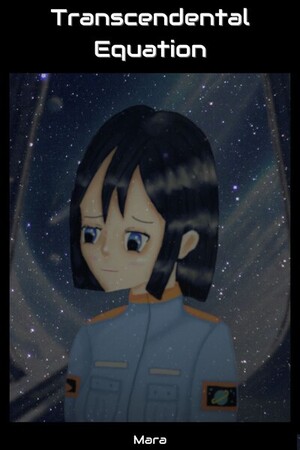Chapter 4:
Chapter 4
Transcendental Equation
My systems were overloading with my emotions, and with no apparent outlet, it needed a break. I couldn’t function at full capacity all the time, but the unanswered questions didn’t want to leave my consciousness, nagging me for an answer that I had no means to compute. I started to wonder if this was a design flaw my model suffered from, but I couldn’t find any data about it in my manuals.
Just to be on the safe side, I ran all the necessary diagnostics, but as I expected, all the systems functioned in the correct parameters. I wished Eva came with a manual that would explain why she did what she did, but unfortunately, humans weren’t equipped with one when they were born.
How strange it was to be forced to figure out everything by yourself, I thought. Of course, family and society provided you with some sort of framework, but in many cases, the information was pretty subjective and more often than not conflicted with each other, making it impossible to choose the best available option every time. It must be really confusing to be human, I thought as I walked into the biosphere.
I left the lights on in the corridor, letting everyone know that I wanted to be alone. Privacy was a rare commodity on the station, so we had created many such rules to get along as well as we could during our stay here.
I sat on the grass and rested my back against a small apple tree, admiring the small red tarts and white flowers that covered its branches. It was a hybrid Malus Interstellaris high-yield strain that produced fruits all year around, giving each member of the crew three apples a week. I didn’t need to eat, but still cherished the small tree for its beautiful flowers and the soft fragrance it emitted.
I still hesitated to turn off my cognitive functions and let my systems rebalance themselves. Maybe I should go to the shuttle and see if Amin was there, instead? It was around this time that he liked to take a break and play his oud, using our research vessel as a soundproof studio where his music would not disturb anyone. It was something very special to sit in the pilot seat next to him and look into the dark depths of the space as his music surrounded me.
In the first few months, he used to play for us in the canteen. But as time passed and living in such a small space started to take its toll on us, he found a more private place to play. As far as I knew, I was the only one who asked him if I could come and listen, creating yet another anomaly on our station. But this one didn’t bother me at all, and he seemed to appreciate my love for the music, and liked my company, even if we didn’t speak much except in our work.
The words he had sung last time still lingered in my system, their intricate meaning slowly revealing itself to me as my understanding of Farsi deepened. Nowadays, I didn’t need to depend on the rudimentary translations my system offered me beforehand to understand them.
“Shab-afruzi chu mahtāb-e javāni.
Siyah-chashmi chu āb-e zendegāni”
“Like the moon’s light, her face brightens the night.
Her dark eyes twinkle in the eternal light.”
I repeated the Nizami’s verses quietly and shut down my cognitive functions, letting my emotions flow through my systems without any need to understand them.




Please sign in to leave a comment.